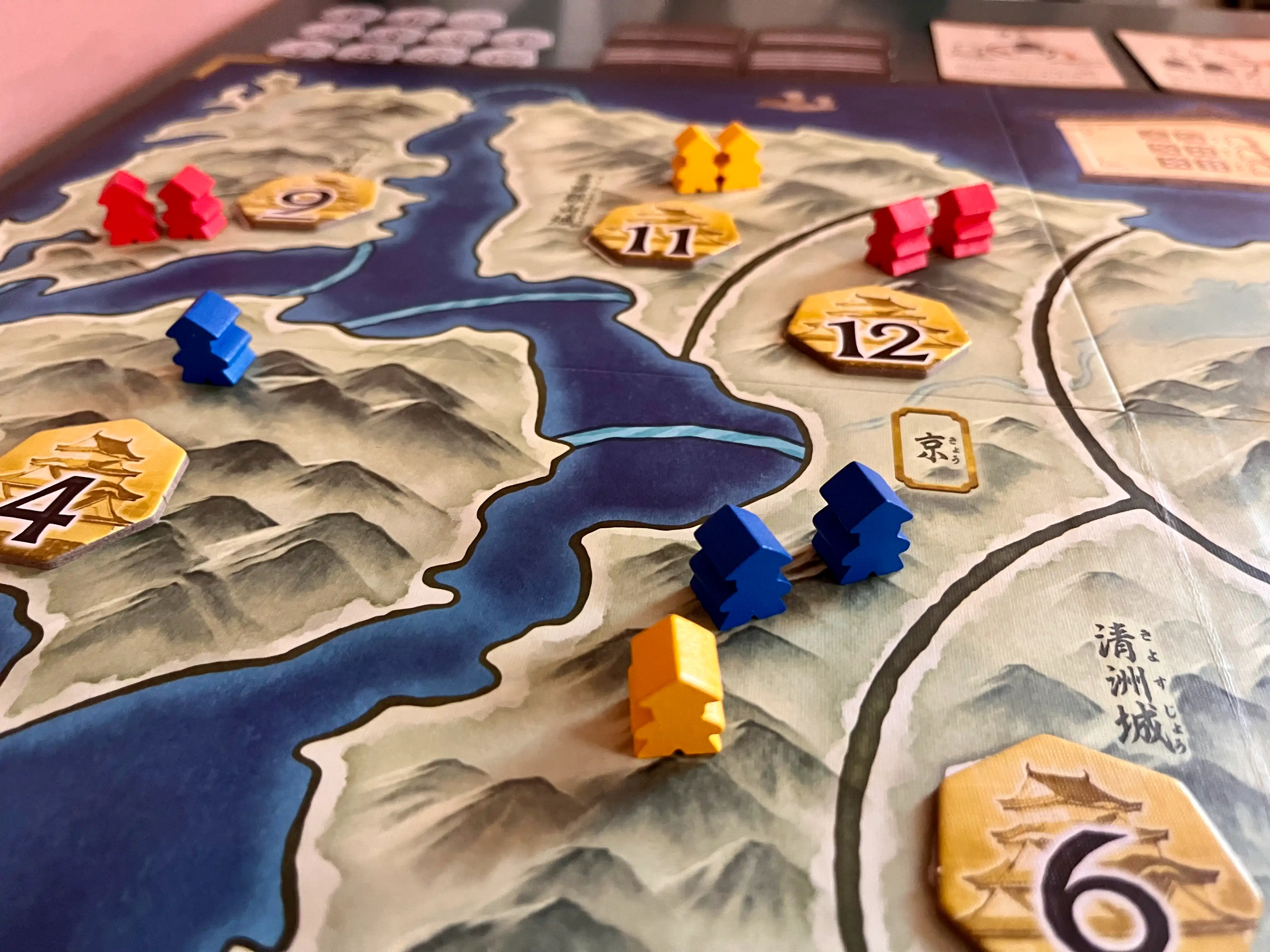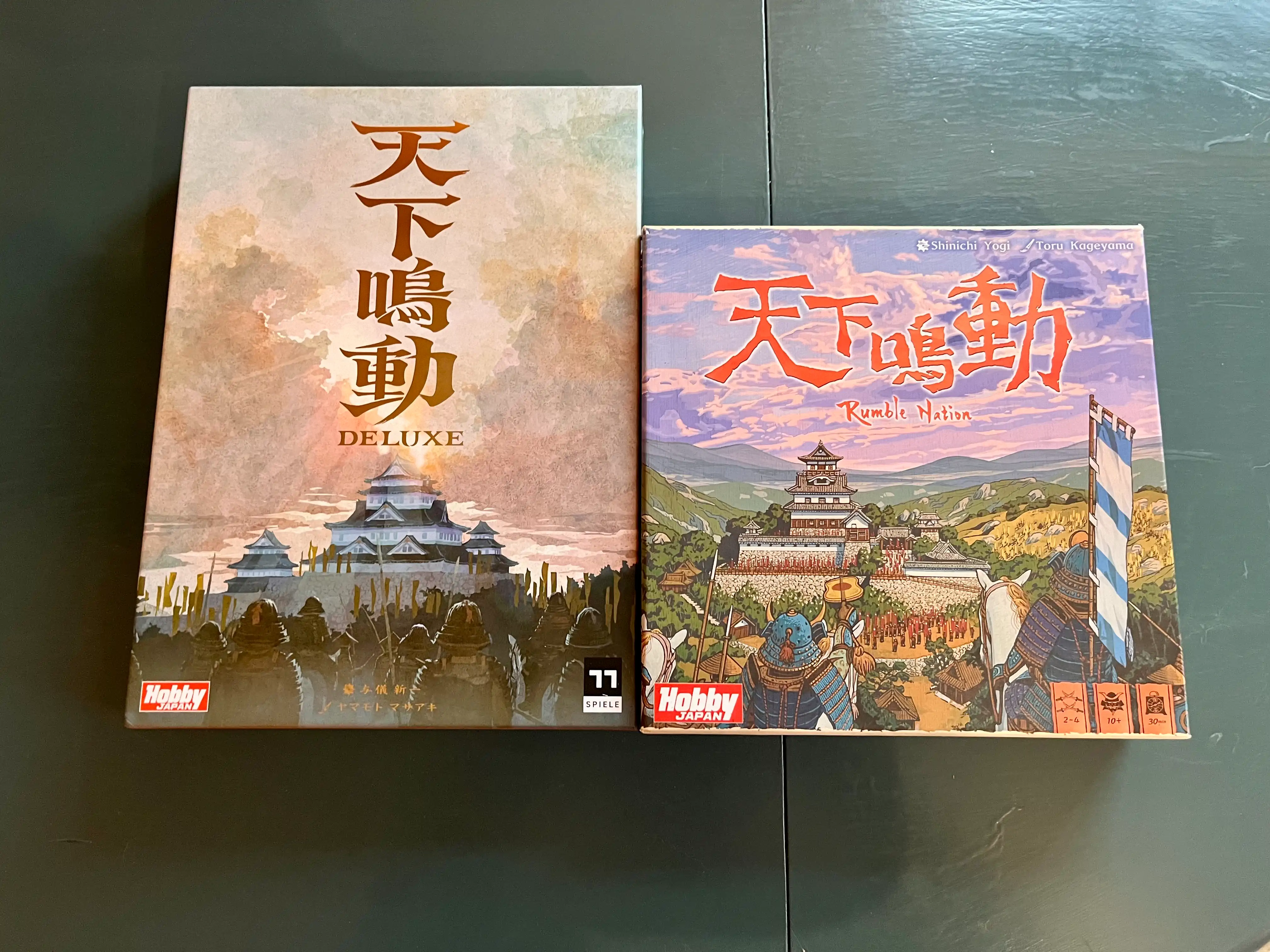Board Games
Rumble Nation – a Terrific, Minimalistic, Japanese Strategy Board Game
Comparison Between the Old, Regular Version and the New, Deluxe Version
A couple of years ago, I got a great recommendation from the Board Game Barrage podcast: The minimalistic area majority board game, Rumble Nation. It only takes about 30 minutes to play, is easy to learn, and is cheap and compact. And all of this while still offering a lot of player interaction and interesting choices.
A rundown of the game:
You're competing for control over 11 areas in feudal Japan numbered from 2 to 12. These will give 2-12 points to the winner (and half points for second place). The winner is the person with the most points.
The game has two phases: One where players will take turns, and there are both chance and choices – and one where you'll see who wins the fights. (But with no chance or choices.)
In phase 2, the person who has the most armies in an area will win it. But here's the most interesting part: You'll determine the winner in order, from 2 to 12. And if you win area 2, you'll be able to add reinforcements, 2 armies, to every adjacent area you have at least 1 army in (and that hasn't been determined yet). So, prioritising high numbers is great, as you'll get a lot of points. But low numbers will give you a lot of extra armies in other higher value fights!
When placing armies, in phase 1, you'll throw 3 dice. You then combine two of them to determine where you place them (if you select 3 and 6, you'll place them in the 9), and the last die determines how many you'll place (half its value, rounded down). You can also, once per game, use a special card ability.
This means you'll place between 1 and 3 armies every round – so everyone won't be done in the same number of rounds. You can't (without using special abilities) move armies you've placed. So, in general, it's best to be the last to commit your armies – but the game has handled this in an interesting way, by having the tiebreaker in the phase 2 fights be whomever finished their phase 1 first.
And as mentioned, phase 2 is 100% deterministic, so the game wraps up really fast and smoothly.
I ordered the original version from Japan, and it’s been a treasured possession. But recently, I was looking at some other games from Japan, and saw that they had made a deluxe version 🖇️ of it – so I ordered it.
I got it in the mail today, and wanted to show how it compares to the original, as I haven’t seen this done anywhere.
The rules
The only gameplay changes compared to the base game is that one tactic card is nerfed a bit,1 and that the deluxe version includes a Daimyo variant/mini-expansion.

